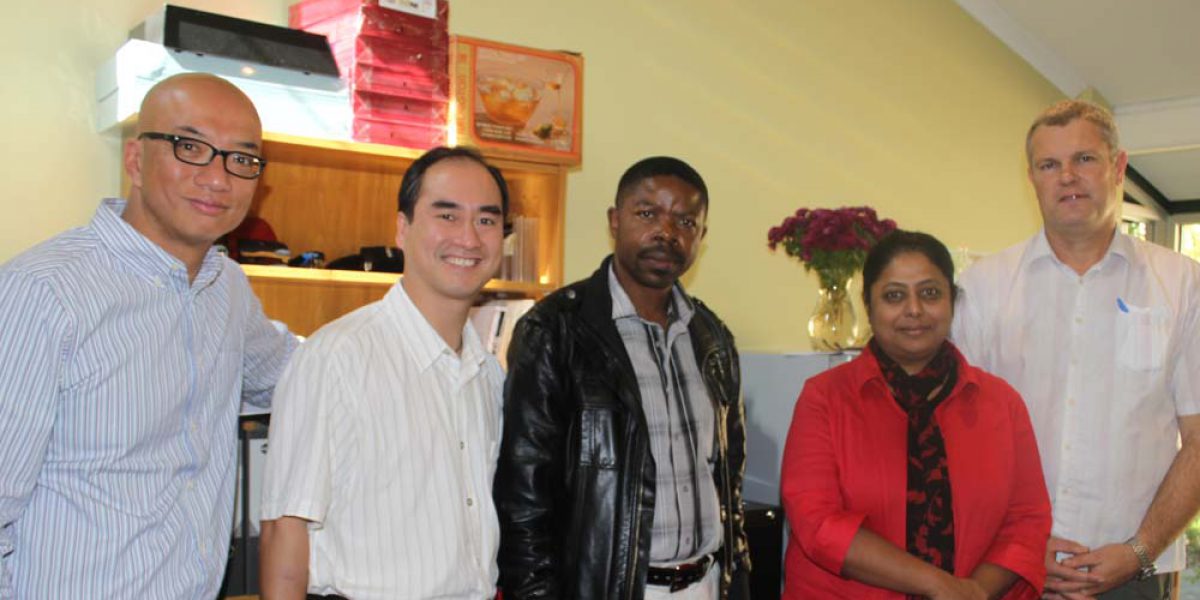Australia: a humane solution for asylum seekers
10 July 2012|Catherine Marshall

Sydney, 10 July 2012 – In a pleasant suburb of Sydney, in a place that once housed university students, thirteen Afghani men are trying to recapture some normalcy in their lives as they await the outcome of their asylum claims.
These men are part of Jesuit Refugee Service’s Vulnerable Adult Male Residence Determination Project (VAM RDP), and this residence is one of eight that JRS is now managing as part of its Residence Determination Program (RDP). The program, spearheaded by the Department of Immigration and Citizenship (DIAC), sees vulnerable refugees – men, women, minors and families who are unable to fend for themselves in the community – housed in the community and cared for by agencies such as Jesuit Refugee Service, Marist Youth Care and the Australian Red Cross.
The house in which the Afghani men live has been rented by JRS from the Divine Word Missionaries (SVD) and can accommodate up to 18 people at one time. There is place for another 22 other asylum seekers in the program, in residences close by, and a family is currently being housed in one of these.
The men’s residence is set in large, tranquil grounds which are filled with foliage and birdsong, but the occupants are so traumatised by their experiences, and so engrossed in trying to resolve their problems, that it is impossible for them to fully appreciate the peacefulness of their location.
‘These men have all come by boat and spent two years in detention’, says Suma Pillai, Project Coordinator for the VAM RDP. ‘Many have been in refugee camps in Pakistan. In detention they have no freedom, and there is the expectation that they will be free, but they forget that it’s still [a form of] detention.’
This is one of the biggest challenges for Ms Pillai and her staff: to support the people who come to stay at the residence but manage their expectations while abiding by the policies set out by DIAC.
‘There is also the pressure – they are so stressed by the fact that they haven’t seen their families, by the detention experience’, she says. ‘There’s an impact on their psychological wellbeing and also their cultural mindset. If they had any issues [at home] they would go and see their elders who would counsel them, whereas here it’s different, we have psychologists and psychiatrists and you have to explain the concept.’
For asylum seekers, the biggest challenge is the waiting, which, for some of them, can last years.
‘Waiting for the visa has tremendous impact on their psychological wellbeing. They don’t know what is going to happen in the future. Sometimes you just have to listen to them. We are here to encourage them, and that is something the caseworkers struggle with.’
It is the caseworkers’ job to assist the residents during the day, taking care of a broad range of practical and emotional needs.
‘We share the duty of care with immigration – while immigration looks after all their visa-related matters, we look after their health and welfare and housing’, says Ms Pillai.
‘We make sure that they are comfortable while they are living in the community, we accompany them to their various appointments, we support them in settlement through education and by trying to make them more aware of what’s there in the community.’
New arrivals undergo a thorough needs assessment, after which a care plan is devised for them. While it’s not the job of JRS caseworkers to provide counselling, many of the asylum seekers are keen to talk about their experiences, and the staff members provide an invaluable listening ear. In the evenings, JRS project assistants and volunteers come in to supervise cooking, teach the men new recipes, help them to budget for the food which they must buy from their small governmental allowance. In many ways, they have become dependent on an institutional way of living whilst in detention, and it is now time for them to learn to stand on their own feet again.
The outcome that everyone here awaits is a favourable ruling on each resident’s asylum claims. But Ms Pillai knows that it’s an outcome which can never be predicted.
‘We had a man who came on the 1st of March and he got his visa on the 7th of March. Before this I was working with the Red Cross, and there was a man who has been waiting 14 years for a visa. You just never know what’s going to happen.’
But despite the uncertainty, Ms Pillai loves her work, because she sees herself as part of a humane response to refugees.
‘Even on a day when a person who has been down, if by the end of the day by whatever actions you have taken that person feels even slightly better, it does leave a sense of satisfaction’, she says. ‘And it’s also humane. This is definitely a better alternative to detention.’
JRS cares for unaccompanied minors and vulnerable men, women and families as part of its Residence Determination Program (RDP). For more information go to www.jrs.org.au
By Catherine Marshall


